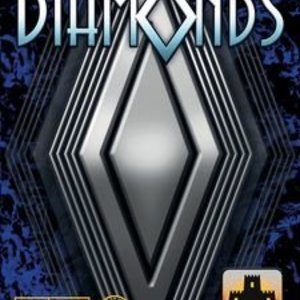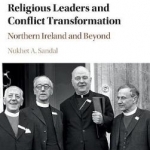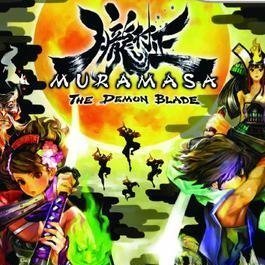
Chord Magic
Music and Education
App
Chord Magic translates different chord symbols commonly found in music to their actual note...
Bethr1986 (305 KP) rated Simple, Safe & Secret: The 1981 Murder of Joan L. Webster by Eve Carson in Books
Jul 25, 2022
This book is so well written that I forgot I was reading about an actual murder. The trauma and turmoil that the people Joan left behind go through is heart-breaking, to never know what happened must play on their minds everyday. I know it would mine.
I found that everything flowed through so smoothly and calmly considering the chaos that is being described. A lot of research has gone in to find as many facts as possible and to keep to the truth without too much of a dramatic flair and fabrication.
I would definitely recommend this book for any body who likes to read true crime.

Diamonds
Tabletop Game
Diamonds is a trick-taking card game in which players collect Diamonds — not cards bearing that...
CardGames FitzgeraldGames GamesforEveryone
Andrew Rich (36 KP) rated Muramasa: The Demon Blade in Video Games
Jun 18, 2019
Part of the reason I love this game as much as I do is that it's an odd duck. There's too much role-play to be a full on action game, but too many elements of an action game to be a full on role-player; but still somehow manages to to feel quite like an action role-player. Muramasa occupies a weird middle ground that I haven't encountered in any other action/role-play title, and it's a middle ground that I keep going back to.
Lately my Wii has been just a Homebrew-channel-running emulator machine, but rediscovering Muramasa has turned it back into an actual Wii. I almost even want to buy a PS Vita, just to pick up a copy of Muramasa Rebirth!

Slots - Pharaoh's Way
Games and Entertainment
App
••• Download the best multi-slot experience for free today! ••• Fun, excitement and...
Farm Hall and the German Atomic Project of World War II: A Dramatic History
Book
This gripping book brings back to life the events surrounding the internment of ten German Nuclear...
Dana (24 KP) rated The Tempest in Books
Mar 23, 2018
This was an interesting play, and I'm not sure where it will fit on my scale for my favorite Shakespearean plays. While the plot was pretty straightforward, I do not know how I necessarily felt about the characters themselves. This being Shakespeare's final play, I feel like he wanted to pull in some aspects from his previous plays to draw the crowds in one last time.
I definitely see Shakespeare in Prospero. Both men are known for their art, Prospero's being magic and Shakespeare's being his writings, and in the end, both will give up those arts to be with their families. While it cannot be proved, Shakespeare did die fairly soon after his career ended, making yet another connection where possibly his "every third thought would be of the grave" just as Prospero foretold. And of course, Prospero's final soliloquy is said to be Shakespeare's swan song, his final curtain call.
Miranda can be seen as a voice for the audience a lot throughout the play. She is the reason we get the backstory about why Prospero is doing what he is doing, she voices concerns that the audiences may all be thinking. I think this was intentional because in most of the Shakespearean plays, there is at least one character who stands in for the audience.
Ariel, not going to lie, I thought he was a female character, though I found out by reading more, and watching a filmed production of it, that he is often portrayed as a male. I do, however, want to see what a female could do with this character. Especially since he is such a pivotal character to the plot line being in most, if not all, scenes in some way or another. Without Ariel, the story would not have been able to happen.
Caliban is weird. I understand why he hates Prospero and Miranda so much, but that doesn't excuse his actions both in the actual play and before it in the history sections.
I do not quite know what to classify this play as. It is definitely not one of the tragedies (mainly because it doesn't have a character name in the title) but it also isn't really a comedy. Would it be a mystical play? I don't really know. If you do, please, message me or comment on the post, because I am curious.
This play is often referenced in literature and in pop culture, but I never fully understood what they meant, so it was fun to be able to finally get what people were talking about. That being said, I do not think this is one of his most popular plays. Yes, it was his last, but I have not seen it come up as much in my studies as, let's say, Hamlet or Romeo and Juliet.
Overall, I enjoyed the play, but it definitely isn't my favorite. That spot still goes to Macbeth.
Rachel King (13 KP) rated The Uncoupling in Books
Feb 11, 2019
The spell of Lysistrata resembled a cold wind and only affected "women who were in some way connected sexually to men." No woman in the book was strong enough to resist the power of this mysterious wind, not even the ones newly in love and lust. Every woman affected imagined her own reasons for abstaining, and though all of the different reasons had a logical ring to them, only other women could relate. The men were simply left in the dark to react however he felt could change his twist in circumstances.
Early on, I felt that this book was a bit like a study of sex and the affects of sex -- or lack thereof -- on individuals and relationships. Even though the play Lysistrata was meant to be a catalyst for all of these private events, the high-school reenactment seemed to take a minor background role. The spell seemed to empower the women, though they did not act any happier with their new freedom and individuality. Many were just as baffled or depressed with the chastity as the men, but no couple was able to converse with each other about it, which I found strange and attributed to the effects of the spell. Ironically, because the issues of sex are such a private matter, very few couples shared their problems with anyone else in town, and so no one truly recognized the correlation between the abstinence of the females in town and the play Lysistrata. This irritated me to no end throughout the book.
On the night of the play, the spell is magically lifted by, quite appropriately, a warm wind when the men in the audience begin to protest the essence of the play itself and use that to try and win their women back. Throughout the whole book, the reader is lead to believe that this spell has no designer, that it has simply attached itself to the performance of the play from Lysistrata's origins in 411 B.C. Though I at first was suspicious of a certain person as casting the spell, I was also lulled into changing my mind about this. Without giving away the ending, I was quite surprised at the truth behind the spell's beginnings. There is much I could say about the thoughts that raced through my head while reading the last few pages and the conclusions that I drew from the revelation, but I will resist. I will say that the book is worth every page for its startling culmination.

Mythical: Pokemon-Inspired DnD Role Playing Podcast
Podcast
Mythical is an actual play Pokémon-inspired Dungeons & Dragons podcast! It is broken down into...

Religious Leaders and Conflict Transformation: Northern Ireland and Beyond
Book
Religious dimension of contemporary conflicts and the rise of faith-based movements worldwide...


